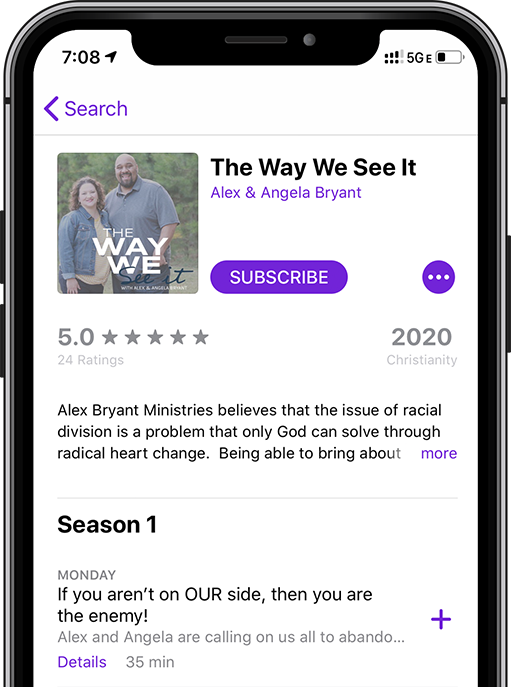What basketball can teach us about credit, consistency, and building generational wealth.
I miss the old-school NBA. Back when basketball was played inside out. When the big men were kings. Shaquille O’Neal, Hakeem Olajuwon, Patrick Ewing, and even Wilt Chamberlain dominated the paint and set the tone of the game. The little guys passed the ball inside, the big guys did the work, and basketball made sense. That was my style of play.
Even in the Jordan era, it still felt right. You had elite athletes like Jordan, Kobe, Allen Iverson, and Vince Carter slashing to the rim, taking the ball inside, and playing through contact. The game still had rhythm and balance.
Then came Steph Curry. He changed the game. Some would say for the better, but I am not one of them. What he did to basketball is what time and circumstance have done to America. The rules have changed. The game looks different. And whether we like it or not, if you want to win, you have to learn how to play by the rules as they are, not as you wish they were.
That same truth applies to Black home ownership. Some would say that for Black Americans, the starting line has always been behind. And they would be right.
There is no denying that this country has a complicated history when it comes to land and ownership. People argue that the land originally belonged to Native Americans and Indigenous peoples, and that is true. History is full of stories where land and power shifted hands through conquest, migration, and settlement. That reality is painful, but it is also part of the human story. We cannot rewrite history, but we can learn from it and work to build something better within the world we have now.
After the Civil War, Black Americans were promised land but never received it. Meanwhile, many white families were given property or access to land that still exists in their names today. A friend of mine told me his family has 400 acres that have been in their family since the Civil War, passed down from generation to generation. There is not a Black person in America today who could say that. That is what generational wealth looks like.
It is true, we did not get that head start. But that does not mean we are out of the game. It means we have to play smarter within the system we have. Our story has always been one of resilience. From slavery to segregation to systemic exclusion, our people have faced obstacle after obstacle and still found ways to rise. We cannot afford to lose that determination now. Yes, we started behind, but sitting around and complaining about it will not move us forward. We cannot live as victims in a time when doors that were once closed are now open. Our ancestors fought for those doors to open, and now it is on us to walk through them. The same spirit that carried them through injustice and adversity can carry us into ownership, wealth, and freedom. The opportunity is not perfect, but it is real, and it is ours to seize.
Booker T. Washington and W. E. B. Du Bois, though they disagreed on methods, agreed on the essentials. They said that for Black people to improve their condition in America, three things were necessary: education, land ownership, and business ownership. Washington believed that political and social equality would take time and that economic progress was the essential first step. He taught that once a large number of Black men and women became skilled, successful, and respected property owners, equality would follow naturally. Du Bois emphasized the power of education and leadership to lift the race as a whole. Between the two, they offered a blueprint that still holds true today.
And here is the good news. There are no laws now that stop us from owning land, buying homes, or building businesses. The barriers that exist today are less about legislation and more about lifestyle, mindset, and financial literacy.
The truth is, not everyone is going to make it to the NBA. That is a dream for a select few. But we all have access to education, and everyone can work toward the dream of owning a home. You may never get paid to play ball under the lights, but you can still put in the work to build stability and wealth for your family. Unlike the pipe dream of trying to make it to the league, home ownership is a real goal that every one of us can reach if we are willing to be disciplined, patient, and intentional. And in order to do that, there are a few key things we must master.
1. Build good credit.
Building a solid credit history is essential for financial health. It opens doors to better loan options, lower interest rates, and even improved housing and job opportunities. A strong credit score shows that you manage money wisely and can be trusted with responsibility. Too often, we set ourselves back by mishandling credit or always looking for the free or easy option. Those shortcuts usually cost more in the long run. Yes, payday loans and quick-cash businesses target our communities, but the solution starts with us. Discipline, planning, and patience are what will keep us moving forward.
2. Learn to save.
We live in a consumer culture that markets aggressively to us. Cars, clothes, vacations, the latest phone. But we have to stop letting advertising dictate our priorities. Saving is about mindset. It is about delaying gratification. We cannot keep buying everything we want today and then complain that we cannot afford to invest tomorrow. Nobody is going to save for us. We have to learn to say, “I will wait.”
3. Strengthen family units.
This might be the toughest one, but it is critical. The breakdown of the Black family has had devastating economic consequences. When mothers and fathers work together, they create stability. They can save, plan, and buy homes. But when the family unit breaks down, we end up relying on government systems that were never meant to build wealth. They maintain survival, not progress. The goal has to be to get off assistance, not settle into it.
4. Educate yourself.
Knowledge is power. You can do a quick online search and learn the steps to buying a home. Start there and then ask questions of people who have already done it. Do not wait for someone else to do it for you. Find a mentor if you need to and take initiative. The information is out there, and the more you learn, the more confident you become.
5. Do not despise small beginnings.
You may have to start with a smaller home, and that is okay. Show that you can be consistent with your payments and build equity. Then, a few years down the road, you can trade up. That is how many families have built wealth over time. Progress is progress, no matter how small it starts.
Just like in the game of basketball, success in life requires planning, discipline, and consistency. The fundamentals matter. In basketball, you win by executing the basics one possession at a time. In life, you win by making wise choices one decision at a time.
Credit. Savings. Family. Education. Ownership. That is what we can learn when it comes to Black home ownership. That is what we can learn from the game of basketball.
And the good news is, progress is being made. According to data from the U.S. Census Bureau, more Black Americans are owning homes than ever before. In the fourth quarter of 2023, the homeownership rate among Black Americans was 45.9%. For Hispanic Americans it was 49.8%, for Asian Americans 63%, and for non-Hispanic White Americans 73.8%. We are moving in the right direction, but we still have a long way to go.
I want to encourage you. I want to encourage my Black brothers and sisters. Let’s keep closing that gap. Let’s become homeowners, and let’s make sure our children become homeowners. That is how we start to build generational wealth.
Alex Bryant is a pastor, author, and speaker who writes about race, faith, and culture in America.




